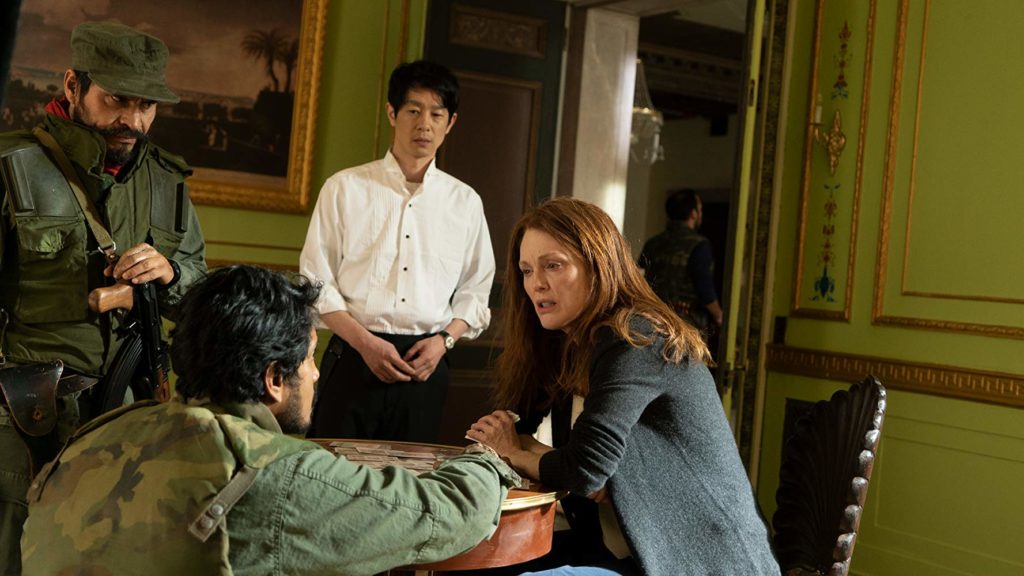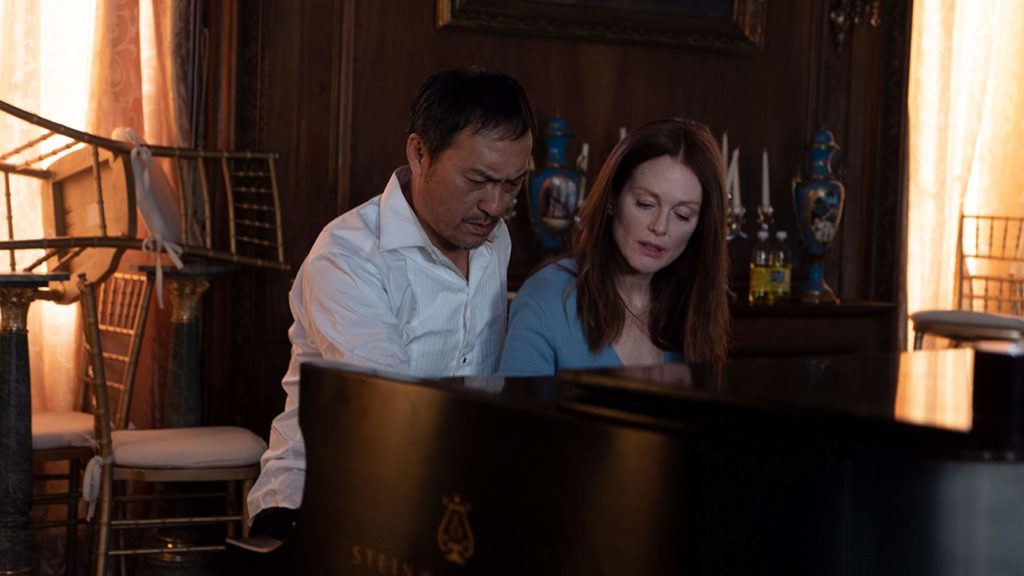If seeing lots of privileged rich people trapped in a fancy house pushes your buttons, then Bel Canto is for you. In all fairness, Paul Weitz’s hostage drama is much more than that, revealing itself to be a watchable look at human communication and connection, but plagued with strange creative choices.

Based on the novel by Ann Patchett, world-renowned opera singer Roxanne Coss (Julianne Moore) is invited to a private dinner party in an unspecified South American country by Japanese factory tycoon Mr. Hosokawa (Ken Watanabe). They, along with a host of other guests, are then taken hostage by a rebellion military group led by Benjamin (Tenoch Huerta). A tense stand-off between the rebels and the local authorities follows, with Red Cross representative Messner (Sebastian Koch) acting as mediator.
Or at least, it should be tense. Truth be told for the first half of Bel Canto is horrifically unengaging. The context for the house party is so rushed and poorly explained that you care little for the characters by the time they have guns pointed at their faces. When they do, Weitz’s achingly slow pacing and a score that sounds like it should wistfully waltz you to sleep do not cut it. The story alone is not enough to make this a blood-pumping drama, instead chronically suffering from an overabundance of characters and information.
Once the film starts to let on what it is really about however, then Weitz and Anthony Weintraub’s screenplay begins to draw you in. At the centre is the growing relationship between Coss and Hosokawa, overcoming their language barriers to grow closer to one another. It is played out with a sweet tenderness by Moore and Watanabe, a pairing that proves to be a quiet revelation. Their growing affection for one another is what manages to rope you in for the long haul. The entirety of the impressively diverse cast all manage to impress, with rebel soldier Carmen (María Mercedes Coroy) coming across especially well.

If you are willing to treat Bel Canto as a drama rather than a political thriller or action film, then you stand to be rewarded. Through some way or another – through demands, translators or singing – many of the characters just want to make themselves heard. The conversations they have with others prove so fundamental to their own well-being, and the screenplay chooses its words carefully. With such a focus on connectivity, the developing relationships could seem far-fetched (love should be the last thing on your mind during a hostage situation) but actually follows convincingly from what Weitz chooses to show. It makes the unreasonable seem reasonable in a way that impresses with its discreteness.
That it has to end in an all-guns blazing manner therefore comes as a shock, and a somewhat unwelcome one. It manages to become violent and dramatic just when you don’t want it to, and far too late. It is an unsatisfying ending to match its unsatisfying beginning, and means that Bel Canto doesn’t really do well if the point is to be an unpredictable hostage flick. This is in no small part due to some questionable choices regarding the film’s execution, but the same people behind these choices help to make it an enveloping human drama. Talking proves a powerful tool in a house full of guns, and when you have as capable a leading pair as Moore and Watanabe, Bel Canto certainly has plenty to offer in that respect.
Bel Canto releases in cinemas on the 26th April, distributed by Vertigo Releasing.
